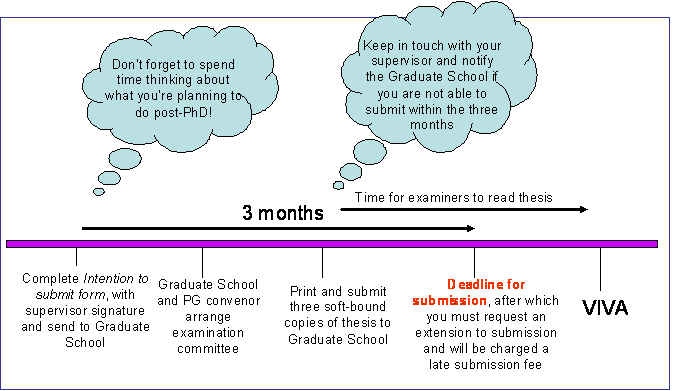Writing up your Thesis - Approaching the Final Stages
A week ago, I was supposed to be writing this blog post about how I am preparing for thesis submission.
Yeah. That wasn’t happening.
Well, if you mean the bumbling mutterings I made when someone asks how the thesis is coming, or the constant anxiety that lives right behind my ears and sometimes makes my face burn, or the fear projected into my dreams that sometimes take the shapes of saber-toothed animals, then yeah.
THAT prep is happening for me.
Down Kitty.
What’s really going on with me is writing.
And writing.
And more writing.
And re-writing.
A little reading.
And then more writing.
If you are in your first or second year, you may still be working on structure. Or if, like me, you are writing up for submit later this year, you sometimes wonder when it will ever be done.
Writing up is a stressful process, but there is help. I will join the PGR chorus that sings about checklists and other organizational strategies. I know, I know. Checklists are dreaded necessity, though and some are provided for you. Start with the PGR Handbook and then make sure you have others that are school specific. I use the kanban organizational method, which involves some listing, but I more task-related. Stick with what works for you.
This is what my Kan-ban board looks like today. But don’t panic. It makes sense to me :o)
HAVE REASONABLE EXPECTATIONS.
This includes using your organization skills to budget time not just for writing, but for the admin that needs to be done in the final days ahead. This includes being realistic about supervisor feedback. Over the course of your PhD you will get to know your supervisor’s style of feedback; some give vague instructions while others give incredibly detailed advice, or even (seemingly) severe feedback. Work with what you have, but ask questions if you have them. Your supervisor wants you to succeed, and your work is a reflection of them.
SET DEADLINES AND FIND PEOPLE TO HOLD YOU TO THEM.
A deadline – even a small one – is more difficult to let pass if you have someone holding you accountable. Doubt the veracity of this statement? You know that friend who is brutally honest with you about the new jeans you bought? Who’s not nearly as nice as your supervisor? Set a deadline with them.
FIND ENVIRONMENTS THAT SUPPORT YOUR WRITING
Time and space to write can be precious commodities, so treat them accordingly. Schedule time for nothing but writing and protect it. If you are in your third year, this also might mean forcing yourself to STOP lab work or research. You need space between data and write-up and a constant flow of data might be undermining the completion of the writing you need done. Remember that you research isn’t valuable unless you can effectively share it with others.
PREPARE FOR THE TEDIOUS DETAILS
Every thesis and every Uni, including UofG, has exacting requirements; I have a PGR pal who spent three full days doing nothing but checking grammar, punctuation, and margins. This was in addition to the two days spent thoroughly checking citations and another three days waiting on the printers. Most experts will tell you to give yourself a solid week for the final preparations of your thesis as a document. Scheduling time for this now frees up your brain to worry over other matters, like revising the introduction to your literature review chapter.
The road is long and the tunnels can be dark.
But if you keep forward momentum, you will get there.
Looking for additional writing help on campus? You can get helpful writing advice for PGRs and even make an appointment to discuss your work with one of the UofG writing Fellows from the Royal Literary Fund.








